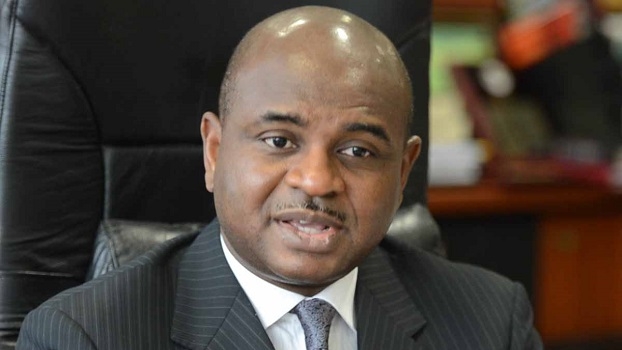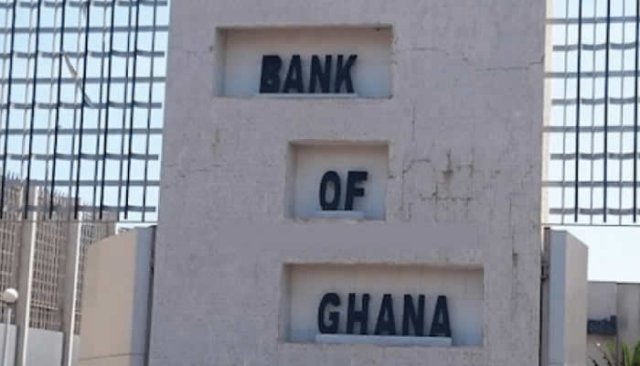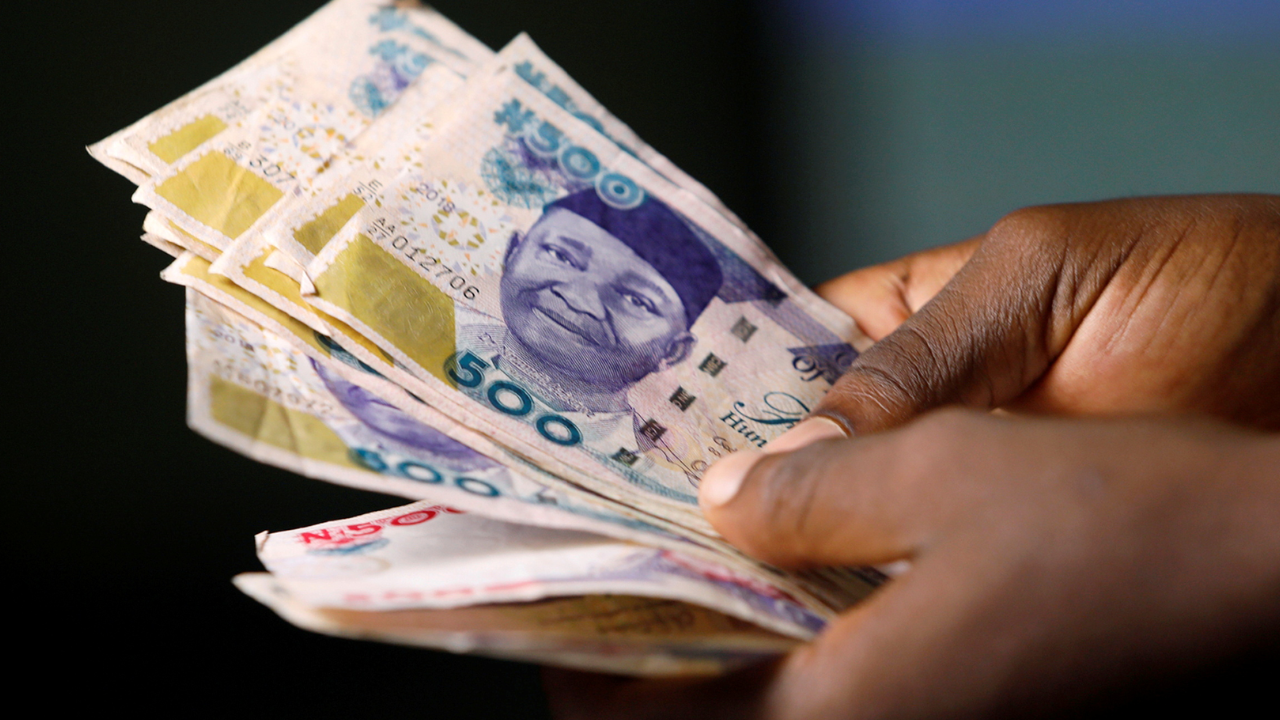Admin
[VIDEO] Yankee no know star o”; I regret relocating abroad – Femi Brainard opens up on being Uber driver
![Why I regret relocating abroad – Femi Brainard opens up on being Uber driver [VIDEO]](https://www.withinnigeria.com/entertainment/wp-content/uploads/sites/6/2024/03/photo-output-29-750x375.jpeg)
Nigerian film actor Femi Brainard has opened up about life while living abroad. The thespian granted an interview with Teju Oyelakin, aka, Teju Babyface on his podcast.
Speaking on the perks as well as the disadvantages attached to relocating abroad, especially being a celebrity, Femi Brainard said it is better to be celebrated and be a prince in Nigeria than to move abroad and be a nobody. He also noted that his wife does not love it at all.
While speaking with the comedian, Brainard noted that anytime he is driving, his Nigerian passengers in particular can’t help but stare at him in disbelief and wonder if he is the star they know.
The actor added that the curious ones would approach him to be sure he was the famous actor they knew in Nigeria.
Femi Brainard said the bills are a lot and he has things like rent to think about. The actor who celebrated his 10th wedding anniversary in May of 2023 explained that he was so broke to an extent once that he went to the parking lot and burst into tears
Ways And Means: CBN’s N30 trillion loan to FG monumental corruption – Moghalu

A former deputy governor, Financial Systems Stability at the Central Bank of Nigeria (CBN), Kingsley Moghalu, has described has grand corruption the 30 trillion ways and means borrowings by the federal government from the apex bank.
Recall that former administration of President Muhammadu Buhari had borrowed N22.7 trillion in ways and means from the Central Bank which was subsequently followed by another N7 trillion borrowing by the current administration of President Bola Ahmed Tinubu.
The development has sparked concerns among citizens as they railed against the violation of extant laws guiding borrowings from the apex bank and the sheer lack of accountability on what the massive loans were used for.
Speaking on the matter and state of the nation in general, Moghalu noted that Nigeria’s economy in the last decade has been dogged by mismanagement and widespread corruption.
Moghalu said this while delivering his keynote address at the annual LEADERSHIP Conference and Awards 2023, holding in Abuja, on Tuesday.
Moghalu said: “We should not be surprised that there is hunger and anger in the land because the past 10 years have been marked by many economic mismanagement, blotted ways and means of the CBN, blotted budget which has paved way for unprecedented corruption.”
He also bemoaned the lack of progressive and people oriented fiscal policies, noting the failings of the government on the fiscal side of the economic spectrum over the years is why the CBN has been overwhelmed.
Moghalu added that with Nigeria will not just step out of the current economic crisis regardless of short term measures as it will last at least three to five years
I’m not desperate to be president — Peter Obi
The presidential candidate of the Labour Party (LP) in the 2023 general election, Peter Obi said he was not desperate to be the President of Nigeria.
Obi spoke while reacting to his award as the Leadership Politician of the Year 2023 at the newspaper’s Annual Conference and Awards event in Abuja on Tuesday.
According to Obi, it was a shame for Ukraine, a war-torn country, to donate grains to Nigeria when Niger State alone can feed the whole of Africa.
He said, “Let me thank the LEADERSHIP Newspaper for this event and the award. We’ve all heard from the keynote speaker.
“For me, this award, I am grateful to the almighty God. If I have the opportunity, I will give my all to the country.
“I am not desperate to be president, I am desperate to make Nigeria work,” Obi stated, while adding that young Nigerians should be productively engaged in order to eliminate poverty and crime.
“We have no reasons to be poor. Poverty should never be part of our lives especially in the North,” Obi said.
He added that with over 7,442,00 square meters of land, Nigeria can feed Africa.
Obi said, “Ukraine has no reason to give us grain. Niger State can feed Nigeria, Africa with over 73, 000 square meters of land.
“The two biggest states in the North-East, Borno with over 70,000 square metres of land and Taraba, are four times the size of Belgium that is exporting food.
“There is so much we can do in the country if we have the right leadership. The more you remove people out of poverty, the more you have less criminals,” Obi said.
NIN: NCC Reveals What Will Happen To Barred Lines After 180 Days

The Nigerian Communications Commission (NCC) has revealed that over 40 million telephone lines barred because owners failed to link their SIM cards with their National Identification Number (NIN) will soon be unable to make calls.
According to the NCC Director of Public Affairs, Reuben Mouka, on Tuesday, if the affected lines are not acted upon in the next 180 days, they won’t be able to receive calls but will only be able to text and make calls. But after the stipulated days, they will also be barred from making calls.
He added that if no action is taken to rectify the SIM’s status within 365 days, the owners will lose such lines completely to the service providers.
According to him, the phone lines blocked by telecommunications companies have exceeded the deadline of February 28, 2024, set by the regulatory body requiring telecom customers to connect their SIM cards to their National Identification Numbers (NIN).
He said, “If the barred lines are not acted upon in the next 180 days, they won’t be able to receive calls but will only be able to text and make calls. But after the stipulated days, they would be barred from making calls too. And might forfeit their lines to their respective service provider within 365 days.”
Binance Exit: Experts List Alternative Investment Options For Nigerians
Economic and financial experts have advised Nigerians on some viable investment options to consider following the Federal Government (FG) clampdown on Binance, a major cryptocurrency trading company.
The experts identified the different investment options in separate interviews with the News Agency of Nigeria (NAN) in Ibadan on Tuesday.
A former banker, Mr Yomi Babalola, said the investment opportunities or options available to Nigerians depend on the risk level and capacity of individuals.
Babalola, however, stated that the High-Interest Savings Account (HISA), a form of short-term investment option, was very important as it could serve as a reserve for liquidity purposes.
“What it means is that you want to have a certain form of investment that can be easily liquidated to cash, especially in case of emergencies.
“To use a high-interest savings account, you can make use of Fintech Savings Apps such as Piggyvest, and Cowrywise,” he said.
He also identified real estate as another investment option that could be considered.
“Land always appreciates – this is something realtors do talk about regularly and they are not lying.
“Real estate is a very profitable and solid form of investment you can delve into because as long as humans exist, there will always be a need for land banking.
“But I must be honest with you, unlike HISA and stocks, real estate is really capital intensive,” he said.
The ex-banker also mentioned personal business as another form of investment.
According to him, this is one option not many people look at when they want to invest their money.
“But I can tell you that it’s a great option to have in your asset portfolio, especially if you know what you’re doing.
“One of the benefits of investing in your business is that it gives you the option of good and steady cash flow.
“Having an investment that yields consistent cash flow is a great asset to have.
“This is because, depending on the business, it can begin to yield returns almost immediately you begin and it also has huge growth potential,” Babalola said.
Meanwhile, the Chairman of the Ibadan Shareholders Association, Mr Eric Akinduro, commended government’s efforts at stabilising the economy by clamping down on institutions supposedly hindering the economy from developing.
“To me, it is a welcome development as we have a lot of loopholes eating deep into our economy.
“However, inconsistency in policies is a major hindrance to the progress of this country,” he said.
Akinduro stated that the money market seemed better now, particularly the bond and treasury bonds, as they now pay higher interest than before.
“So, these can be considered.
“Nevertheless, we still have some potential in the capital market for companies that have good fundamentals – this can also be considered,” he said.
A financial expert, Mr Tunji Adepeju, who said the present hardship was not peculiar to Nigeria, urged Nigerians to start farming in bags and plastic containers to boost food production.
He encouraged families to embrace backyard farming of vegetables, tubers, and fruits, especially since 51 per cent of monthly income goes into feeding according to the National Bureau of Statistics.
“Some people are already taking advantage of backyard farming and if everybody does, we will force down prices of food items made to keep increasing by some people because of greed and corruption,” Adepeju said.
President Tinubu Orders Customs To Sell Seized Food Items To Nigerians

The Comptroller General of Customs and Excise, Adewale Adeniyi, has said President Bola Tinubu gave orders for seized food items to be sold to vulnerable Nigerians to address hunger across the country.
Adeniyi disclosed this on Tuesday on the floor of the House of Representatives during the sectoral debate series, which also had in attendance the Minister of Agriculture and Food Security, Abubakar Kyari.
According to Mr Adeniyi, President Bola Tinubu gave the directive that food items produced in Nigeria and seized at the Nigerian land borders, be sold directly to vulnerable Nigerians to ease the challenge of hunger in the country.
He said, “Mr President has directed that we sell directly to needy Nigerians food items produced locally but which were seized. This is one of the ways to address hunger and food scarcity we are facing. We have started this in Lagos.
“Also, the President has also directed that imported food items seized by the Nigeria Customs Service should be sold back to the local markets for resale to Nigerians,” he said
Ghana Central Bank suspends FX trading licences of Nigerian bank's over malpractices

The Bank of Ghana has imposed a one month suspension on the foreign exchange trading licences of the Guaranty Trust Bank Ghana Limited (GTB) and FBNBank Ghana Limited (FBN), due to malpractices including fraudulent documentation.
In a statement announcing the suspension, Bank of Ghana said: “Bank of Ghana has suspended the Foreign Exchange Trading Licences of Guaranty Trust Bank Ghana Limited (GTB) and FBNBank Ghana Limited (FBN), effective 18th March 2024, for a period of one (1) month, in accordance with section 11 (2) of the Foreign Exchange Act 2006, (Act 723).
“This is as a result of various breaches of the foreign exchange market regulations, including fraudulent documentation in their foreign exchange operations which have come to the attention of Bank of Ghana.
“The licence will be restored at the end of the one-month suspension period once the Bank of Ghana is satisfied that they have put in place effective controls to ensure strict adherence to the foreign exchange market regulations.
“By this statement, we caution foreign exchange market players to adhere strictly to the applicable forex market regulations and guidelines.”
Implement cash transfer programme before addressing fuel, electricity subsidies - IMF tells FG:

The International Monetary Fund (IMF) has emphasised the need for the Nigerian government to prioritise the full implementation of its cash transfer program to aid vulnerable households.
This step is crucial before the government takes on the task of revaluating the costly fuel and electricity subsidies.
According to the IMF, the established social safety net programme, designed to disburse cash transfers to the poor and vulnerable, needs to be operational to its fullest capacity. This approach ensures that the economically vulnerable segments of the population remain shielded as the government contemplates adjustments to the existing fuel and electricity subsidy framework.
This recommendation emerged in the backdrop of concerns raised by the IMF over the fiscal burdens emanating from the current practice of subsidising fuel and electricity in a statement following a recent visit by an IMF team led by Axel Schimmelpfennig, the IMF mission chief for Nigeria.
According to the statement, the continuation of capping fuel pump prices and electricity tariffs below their recovery costs could lead Nigeria to incur fiscal costs of up to 3% of its Gross Domestic Product (GDP) in 2024.
This visit, part of the 2024 Article IV Consultations, saw the team engage in discussions with key Nigerian officials in Lagos and Abuja from February 12 to February 23, 2024.
The statement read partly:
- “Recent improvements in revenue collection and oil production are encouraging. Nigeria’s low revenue mobilization constrains the government’s ability to respond to shocks and to promote long-term development.
- “Non-oil revenue collection improved by 0.8% of GDP in 2023, helped by naira depreciation. Oil production reached 1.65 million barrels per day in January as the result of enhanced security. The capping of fuel pump prices and electricity tariffs below cost recovery could have a fiscal cost of up to 3% of GDP in 2024.
- “The recently approved targeted social safety net program that will provide cash transfers to vulnerable households needs to be fully implemented before the government can address costly, implicit fuel and electricity subsidies in a manner that will ensure low-income households are protected.”
3.2% GDP growth in 2024
The IMF notes that despite Nigeria’s economy showing signs of growth in the fourth quarter of 2023, with a GDP growth of 2.8%, this growth barely keeps pace with population dynamics.
The Fund further projects an improvement in GDP growth to 3.2% in 2024, supported by increased oil production and anticipated better harvests. However, challenges such as high inflation, a weakening naira, and the need for tighter monetary policies are expected to pose significant headwinds.
On food security and social protection
During its visit, the IMF team praised the Nigerian government’s efforts in addressing food insecurity, which affects approximately 8% of the population.
The team also acknowledged the approval of a targeted social safety net programme intended to provide cash transfers to vulnerable households. This initiative, coupled with improvements in revenue collection and oil production, is seen as a positive step towards stabilising the economy.
However, the IMF emphasised the urgent need for Nigeria to address the financial implications of fuel and electricity subsidies. The Fund suggested that before tackling these costly subsidies, the recently approved social safety net program must be fully implemented to protect low-income households effectively.
On MPR
The IMF also applauded the decision of the Monetary Policy Committee (MPC) to tighten monetary policy further by increasing the policy rate by 400 basis points to 22.75%.
This move, aimed at containing inflation, which had hit 29.9% year-on-year in January 2024, and alleviating pressure on the naira, represents a total tightening of 1,025 basis points since May 2022.
More Insights
- The elimination of fuel subsidies and other recent policies have had a disproportionate impact on Nigeria’s poor and vulnerable, who stand to benefit greatly from a monthly cash transfer system.
- The World Bank earlier said that cash transfers can help save Nigerians from intergenerational poverty traps as inflation and low economic growth adversely affect the poor.
- President Bola Tinubu launched a social safety net programme last year that will distribute N25,000 to 15 million homes for three months in observance of the 2023 International Day for the Eradication of Poverty.
- The Federal Ministry of Humanitarian Affairs and Poverty Alleviation is tasked with carrying out the $800 million World Bank loan project.
- However, the Federal Government had to suspend the cash transfer programme for further investigation and revamping following alleged misappropriations within the programme.
- Betta Edu was earlier suspended as a humanitarian affairs minister due to the misappropriation of N585 million earmarked for palliative distribution.
- Also, Edu’s predecessor, Sadiya Umar-Farouq, is being investigated by the EFCC. The ex-minister is being probed over an alleged laundering of N37.1 billion during her tenure as a minister.
- The Federal Government recently said that it has revamped its cash transfer programme to combat fraud, with immediate implementation of direct payments.
Binance Asks Nigerians To Withdraw All Naira assets, Set To Discontinue Services In Nigeria

Crypto trading platform, Binance, has advised Nigerians trading on its exchange to withdraw all their NGN assets as it discontinues services in the country.
This comes amidst ongoing rancour with the Nigerian government over Binance operations in the country.
The crypto platform is being accused of manipulating the country’s currency leading to its steady fall against other currencies. Some of its executives are also currently being detained by the Nigerian government.
The company said it would no longer accept Naira deposit from today, March 5, adding that Nigerians now have until March 8 to withdraw their assets. Binance said any asset not withdrawn by that date would be converted to USDT.
Although the Nigerian government has blocked access to the Binance website weeks ago, the company in a statement released on Tuesday and published on its website, said:
“Fellow Binancians, Binance will discontinue all Nigerian Naira (NGN) services as per the timeline below.
“Users are encouraged to withdraw NGN, trade their NGN assets or convert NGN into crypto prior to the discontinuation of these NGN services.
“From 2024-03-08 08:00 (UTC), any remaining NGN balances in users’ Binance accounts will be automatically converted to USDT based on the conversion rate below.
“Binance will not support deposits of NGN after 2024-03-05 14:00 (UTC).
“Withdrawals of NGN will not be supported after 2024-03-08 06:00 (UTC).
“After 2024-03-08 08:00 (UTC), Binance will convert any remaining NGN balances in users’ Spot and Funding wallets into USDT on behalf of users at a ratio of 1 USDT = 1,515.13 NGN.
“Please note that the conversion rate is calculated based on the average closing price of the USDT/NGN trading pair on Binance Spot in the last seven days.
“The conversion may take approximately up to 24 hours or longer. USDT tokens will be credited to users’ Spot wallets thereafter, and users can confirm receipt of the tokens via the Convert History page.
“If users hold less than 0.00000001 USDT worth of NGN in their Spot and Funding wallets, they will each receive 0.00000001 USDT in their Spot wallets after the conversion.”
Binance said it would delist all existing NGN spot trading pairs (i.e., BTC/NGN and USDT/NGN) at 2024-03-07 03:00 (UTC).
All open spot orders with respect to the above trading pairs will automatically be closed when trading ceases in the relevant trading pair.
“Users should ensure they have not selected “Hide Small Balances” in all of their wallets to view their assets after trading ceases,” it added.
The company it would also convert will delist NGN and all corresponding pairs at 2024-03-07 02:00 (UTC), while Binance P2P delisted all NGN trading pairs at 2024-02-28 15:00 (UTC).
“Binance Auto-Invest will delist NGN after 2024-03-06 03:00 (UTC). Users may choose to remove the plan(s) beforehand. Otherwise, the next recurring cycle of the aforementioned token(s) will fail,” it added.
Binance said it would remove NGN from the list of supported payment options on Binance Pay at 2024-03-06 03:00 (UTC).
Abuja Warehouse Looting Criminal, Not Due To Hunger — Minister

Minister of State, Federal Capital Territory (FCT), Dr. Mariya Mahmoud, has rebuked the suspected hoodlums who looted a warehouse in Gwagwa-Tasha on Sunday, saying their action was a sheer criminal act that was not in anyway motivated by hunger.
She said this yesterday at the end of an assessment visit to Gwagwa-Tasha to ascertain the level of damage to the warehouse where the palliatives for the six area councils were stored.
She also vowed that going forward, the FCT administration will now establish police posts in all government-owned warehouses to protect them from looters.
The minister decried the brazen stealing of all the grains and other food stuffs, including the roofs and fence of the storage facility.
She expressed outrage at the attitude of the youths within area, assuring that the administration would now establish a police post in all government warehouses across the territory to deter the recurrence of such act.
“We are here due to the unfortunate incident that happened early hours of yesterday, (Sunday) where hoodlums attacked this very warehouse and packed everything that was here, including the fence.
“Not only the food items that were here, including the roofing, windows, and even the gates of this place and offices were all attacked. You can see the level of damage. There is nothing that is left here, including machineries that are used for the processing of these things.
“As you have heard, people around, the youth of the environment or the community are suspected to have instigated this incident. So, this is a very sad event. And we are not happy about it,” Mahmoud said.
She also vowed that the administration would prosecute those behind the ugly incident, noting that the unfortunate incident occurred when the administration was restocking its warehouse with a view to meeting up with the directive of President Bola Tinubu to distribute palliatives to all the six area councils in FCT.
She said: “We did distribution about twice. And then about to do the third one, where these trucks were here to offload these food items, and then they were attacked, they even injured some people on duty.
“This is really a bad situation. And it is not something that the administration will take lightly. All those that are involved must be brought to book. We have to do something.
“And also, this is a sign that we need to reinforce the security situation around all our warehouses, because you just have to keep food.
“But the way this thing happened actually is beyond hunger. This is a criminal act. Somebody that is hungry cannot move out to remove all the roofing that is here. All the doors, all the windows, and also the gates.
“This is not showing that we are good ambassadors of the nation. So definitely we are going to take action about this event that has happened.”
However, she warned that the incident may slow down the distribution of palliatives in the territory, saying the administration may have to reconstruct the warehouse, all the offices, including the gates that were damaged.
